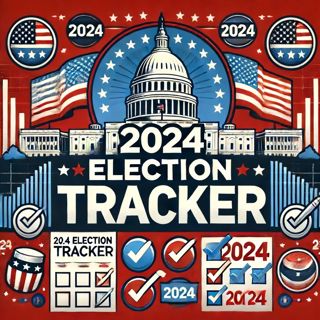
Engaging Gen Z Voters and Combating Misinformation: Key Strategies for the 2024 U.S. Presidential Election
Jaksokuvaus
As the 2024 U.S. presidential election approaches, various strategies and narratives are emerging from both major and other parties, with several notable efforts focused on appealing to different demographic groups and managing pervasive conspiracy theories.One intriguing development is Barron Trump, the youngest son of former President Donald Trump, taking an active role in his father's election campaign. Alongside Bo Loudon, they are strategizing to attract Gen Z voters, a group that is increasingly influential due to its size and growing voting power. Their approach includes engaging with popular YouTube personalities, aiming to leverage these influencers' reach among young people. This tactic recognizes the importance of social media and digital platforms in modern political campaigns, reflecting a shift from traditional campaign methods to more direct and tech-savvy approaches.On another front, the 2024 election is also seeing the continuation of a troubling trend from previous campaigns: the spread of conspiracy theories. One of the more outlandish theories circulating is that the current U.S. president, as of the time leading up to the election, is supposedly no longer alive. Such conspiracy theories, while baseless, can impact voter perceptions and show the challenges of combating misinformation during the digital age.Additionally, the role of Asian American voters is coming under the spotlight as potentially pivotal in the upcoming election. Historically considered a minority voting block, Asian Americans have shown varying political preferences that often reflect their diverse backgrounds and experiences. Analysis suggests that their vote could be crucial in swing states, prompting both major parties to intensify outreach efforts and tailor specific political messages to appeal to this diverse group.With the U.S. political landscape more polarized than ever, the success of these various strategies will not only determine the outcome of the 2024 election but also shape the future direction of American domestic and foreign policy. As campaigns evolve and adapt, the importance of understanding and addressing the needs and preferences of a changing electorate has never been more apparent.
